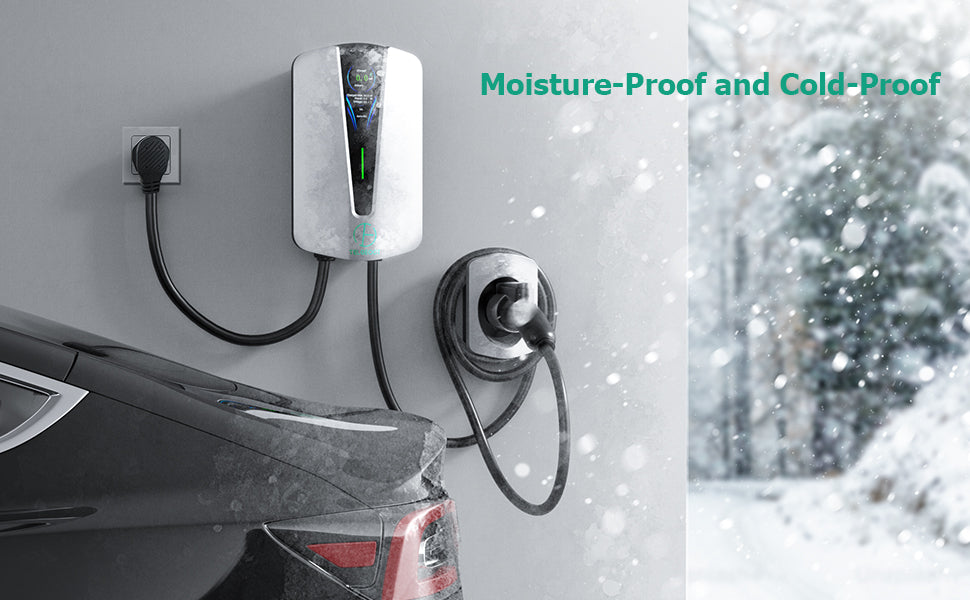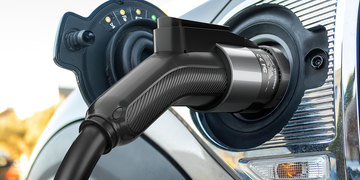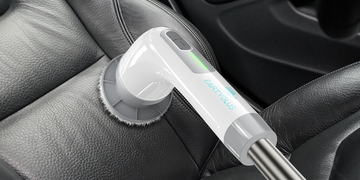How Do I Increase EV Battery Life? As electric vehicles (EVs) continue to gain popularity, one of the key concerns for EV owners is maximizing the lifespan of their vehicle's battery. The battery is a crucial component, and its longevity directly impacts the overall performance and cost-effectiveness of an electric car. In this article, we'll explore practical tips on how to increase the lifespan of an EV battery.
Manage Charging Habits:
Avoid Frequent Deep Discharges: Lithium-ion batteries, commonly used in EVs, prefer to operate within a moderate state of charge. Frequent deep discharges can accelerate degradation. Aim to keep your battery within the recommended state-of-charge range.
Limit High-Speed Charging: While fast charging is convenient, excessive use can contribute to faster battery wear. Opt for regular charging whenever possible and reserve fast charging for when it's truly necessary.
Optimize Charging Times:
Off-Peak Charging: Consider charging your EV during off-peak hours when electricity demand is lower. This not only supports grid efficiency but can also reduce stress on the battery.
Set Charging Limits: Many EVs come with the option to set charging limits. If your daily commute doesn't require a full charge, consider setting a lower charging limit to reduce strain on the battery.
Moderate Temperature Control:
Avoid Extreme Temperatures: High temperatures, as well as very low temperatures, can impact battery performance and longevity. Whenever possible, park your EV in the shade or a garage, and use climate control features to pre-condition the battery before driving in extreme temperatures.
Preconditioning: Use the vehicle's pre-conditioning feature while plugged in. This allows the battery and cabin to reach a comfortable temperature while drawing power from the grid rather than the battery.
Regular Maintenance:
Software Updates: Keep your EV's software up-to-date. Manufacturers often release updates that can include optimizations for battery management, enhancing overall efficiency and lifespan.
Tire Maintenance: Proper tire maintenance, including maintaining the correct tire pressure, can contribute to improved energy efficiency and, indirectly, battery health.
Mindful Driving Practices:
Smooth Acceleration and Braking: Avoid aggressive driving habits, as smooth acceleration and braking reduce strain on the battery and other components.
Regenerative Braking: Take advantage of regenerative braking systems when available. This feature recovers energy during braking and feeds it back into the battery.

What is the lifespan of an electric car battery?
The lifespan of an electric car battery can vary based on several factors, including the type of battery, the specific chemistry used, driving habits, climate conditions, and how well the vehicle is maintained. As of my last knowledge update in January 2022, lithium-ion batteries are the most common type used in electric vehicles (EVs), and they typically have a lifespan of 8 to 15 years.
Here are some key considerations that influence the lifespan of an electric car battery:
Chemistry: Different types of lithium-ion battery chemistries, such as lithium iron phosphate (LiFePO4), lithium nickel manganese cobalt oxide (NMC), and lithium cobalt oxide (LCO), have varying lifespans. Generally, newer chemistries are designed for improved durability.
Charge Cycles: A charge cycle is defined as a full 0-100% charge of the battery. The more charge cycles a battery goes through, the more its capacity tends to degrade over time. However, advancements in battery technology aim to extend the number of charge cycles a battery can undergo.
Temperature: Battery lifespan is influenced by temperature extremes. High temperatures can accelerate chemical reactions within the battery, leading to degradation, while very low temperatures can reduce efficiency. Climate control features in electric vehicles help manage temperature conditions.
Charging Habits: Fast charging and frequent deep discharges can contribute to faster battery degradation. Charging the battery to 100% or letting it discharge to very low levels regularly can have an impact. Maintaining the battery within a moderate state of charge can help extend its life.
Manufacturer and Model: Different EV manufacturers and models may use batteries with varying characteristics and chemistries. Some manufacturers offer warranties for a specific number of years or a certain amount of mileage, providing confidence in the expected battery life.
Advancements in Technology: Ongoing research and development in battery technology aim to improve energy density, charge/discharge efficiency, and overall battery durability. Newer electric vehicles may benefit from technological advancements that extend battery life.
It's important to note that battery technology and electric vehicle design continue to evolve. As of my last update, it's advisable to check the specific details provided by the manufacturer of your electric vehicle regarding battery life expectations and any warranties or guarantees they offer. Additionally, ongoing research and development in the electric vehicle industry may bring about improvements and innovations that impact battery lifespan in the future.
How Do I Increase EV Battery Life? Increasing the lifespan of an electric vehicle battery involves a combination of mindful charging habits, temperature control, regular maintenance, and driving practices. By adopting these practical tips, EV owners can enhance the longevity of their batteries, ultimately contributing to the sustainability and cost-effectiveness of electric transportation. Stay informed about manufacturer recommendations for your specific EV model and make adjustments to your habits accordingly.





